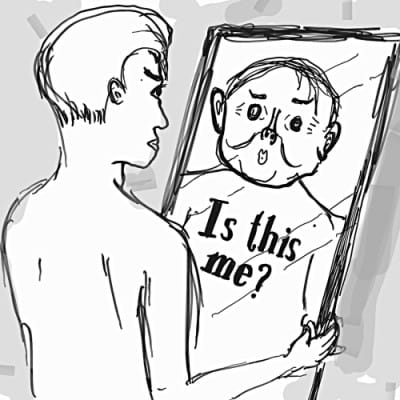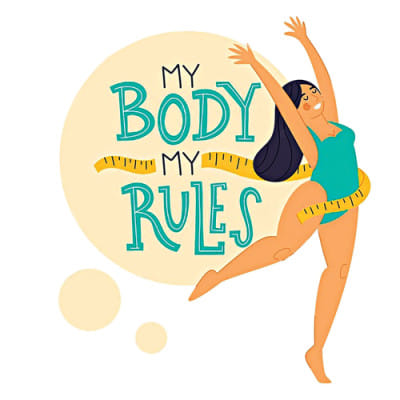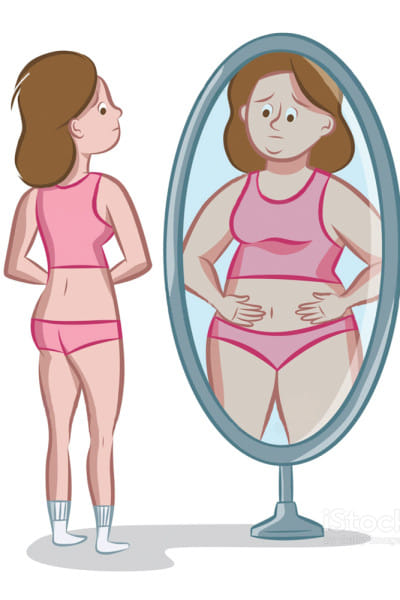Body image, mental health condition and the influence of media: The pertinent trio

It is common knowledge that the most relevant perceptions and notions (that matter) in our lives are primarily shaped at the crucial age of adolescence. This is when we are at the beck and call of the media, our friends and even siblings; everything that we consider as 'valuable' during this specified period of time influences us for the long haul. So, if a teenager witnesses her favourite singer endorse an idealised body size, her mind will forever be etched with the notion that there is 'only one perfect size,' which is meant for all. This concept applies to teens of all genders, races and upbringing. Hence, experts usually target young adults when they especially want to motivate a generation to change perceptions.

"It is always better to start early than to rectify late," says Farin Daula, Mental Health Practitioner and Life-skills Educator (Adolescents and Youth) and also the founder of One Circle (a life-skills education institution).
We recently interviewed Daula for a better understanding of the ideology behind body positivity, and what it actually meant to the youth of today and how their influences could be affected to make them less susceptible to overall negativity and depression.
How can people celebrate their bodies every day?
Just like our personalities, our bodies are unique as well. The world would be a very boring place if we all looked the same! Every time we get a negative thought about our bodies, we should try to remember the unique aspects of our own bodies instead. Additionally, we should also try to shift focus to 'what our bodies can do' rather than 'what it looks like' – helping to augment our self-belief.
What kind of people makes a person feel bad about their body and why?
People who body shame others are often extremely critical of their own bodies as well. This is detrimental for both the person experiencing it and the person doing the damage. Body shaming is a learnt behaviour. Society teaches us definitive notions of beauty, such as too fat, too thin, too dark, too pale etc. and we criticise anyone who doesn't fit that notion. Culturally, it has been accepted to body shame ourselves and those around us. There are friends and family who believe that they "mean well" when they body shame others around them. We can stop this by immediately calling them out and voicing it to them on why it's completely unacceptable to shame someone about their looks.

Why are adolescents more susceptible to the outside pressure to looking good? How can they be motivated in a positive way during their formidable years?
Media, including social media, plays a huge part in shaping young people's views on unrealistic beauty standards. This comes in the form of photo shopped celebrities, skinny models, and an unaccommodating six-pack culture. Media glorifies and celebrates beauty of only a certain type, weight, height, skin colour etc.
There is also a drawback to putting too much emphasis on body positivity since the focus is still on physical appearances. Instead, society as a whole should shift the focus to personality, positive character, and skills. We have to stop drawing parallels between our looks and our sense of self-worth.
Body positivity is a very common term that we frequently use nowadays to influence the youth of today. What does it actually mean?
Body image is how and what we think about our bodies. A positive body image is about accepting our physical appearance, and being satisfied with the way we look. Body positivity means accepting ourselves and others around us the way we are and understanding that there is no single notion to being beautiful. Positive body image is important for self-esteem, mental health and a balanced attitude towards healthy eating and an active lifestyle.

We often see adults suffering from severe depression because their insecurities had not been addressed earlier. How can these people be helped?
Shift focus from physical appearance to the whole person that you are.
Confront those who perpetuate body shaming.
Promote body positivity and be a role model to others who are struggling.
See a mental health expert as soon as possible if things are getting too out of control.
Finally, having said everything, it must be mentioned that "body positivity" should be taught early on in our lives, just like any other subject because it will help us to grow as stronger individuals later in life. Daulah agrees that body positivity, along with a comprehensive list of a few other life-skills education should be made a compulsory part of every educational institution across the country.
"We need to incorporate mental health, physical well-being and social skills into our curriculum and these issues need to be given equal importance as other academic subjects. There is a mental health pandemic which we simply cannot ignore," said the worried expert.
Interviewed by Mehrin Mubdi Chowdhury
Photo: Farin Daulah/ Collected
Disclaimer: If someone you know is suffering from depression for longer than two weeks and it's affecting their regular lives, it is best to seek help from a professional mental health expert immediately.

 For all latest news, follow The Daily Star's Google News channel.
For all latest news, follow The Daily Star's Google News channel. 



Comments